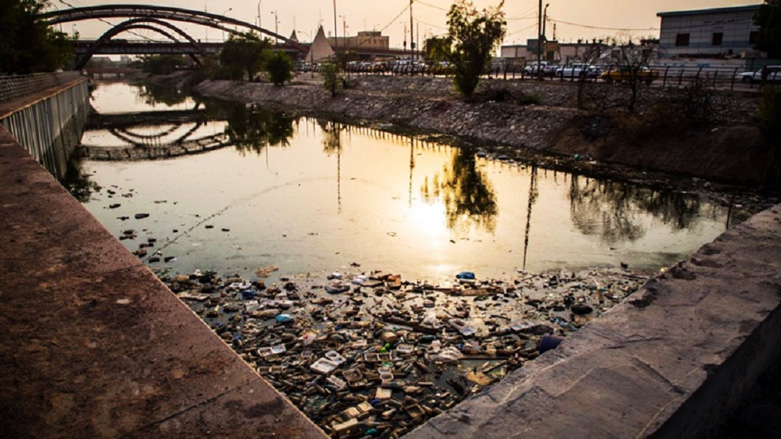Australia pledges $6.1 million to fight southern Iraq's clean water crisis

ERBIL (Kurdistan 24) – The UN announced on Tuesday that Australia had pledged $6.1 million to support the provision of water and sanitation services for vulnerable children in southern Iraq, where over 100,000 residents fell ill to water poisoning in late 2018.
The United Nations International Children’s Emergency Fund (UNICEF) made the announcement ahead of World Water Day, which highlights water access issues on March 22.
“The needs of children in the southern governorates cannot be overstated. There is an urgent need for both immediate and long-term investment in critical water and sanitation services, particularly in the worst affected governorates of Basra, Thi-Qar and Diwaniya,” Peter Hawkins, UNICEF’s representative in Iraq, said.
Years of conflict, mass displacement, climate change, and underinvestment in water networks “have created a water crisis that is affecting large parts of the country,” the statement continued. Basra, in particular, has had chronic issues with salinity seeping into its water supply.
In September and October, water contamination in the oil-rich city of Basra caused over 110,000 people to suffer water poisoning, Iraq’s High Commission for Human Rights (IHCHR) announced at the time, specifying that many students had been affected.
The poisonings added fuel to mass protests that had been raging for months across several southern and central provinces, including Baghdad. In addition to demands for improved public services, other fundamental issues of the movement have been poor infrastructure, lack of employment, and government corruption. Organizers and the public alike decry the low standard of living in the oil-rich province, the petroleum exports from which account for over 90 percent of the nation’s total revenue.
After the poisonings, the IHCHR also stated that at least 500 students from Basra intended to move to schools in the Kurdistan Region’s capital of Erbil, with some reports suggesting that at least 4,000 had registered to do so.
“The Australian Government is pleased to be partnering with UNICEF in providing safe drinking water to the most vulnerable communities and to prevent children becoming sick from preventable waterborne diseases,” Australian Ambassador to Iraq Joanne Loundes said on Tuesday.
The new project aims to provide access to sufficient and safe water services to 3.8 million children over the next two years, improving access to water in health centers and schools “for 1.7 million families, as well as strengthening the government’s capacity for integrated water resource management in four governorates.”
In late September, The United States Agency for International Development (USAID) contributed $750,000 to UNICEF to help vulnerable Iraqis in Basra get access to clean water by installing five water pumps, rehabilitating an existing water treatment plant, and maintaining other water treatment projects in an effort intended to bring clean and safe water to 750,000 people.
Editing by Karzan Sulaivany
